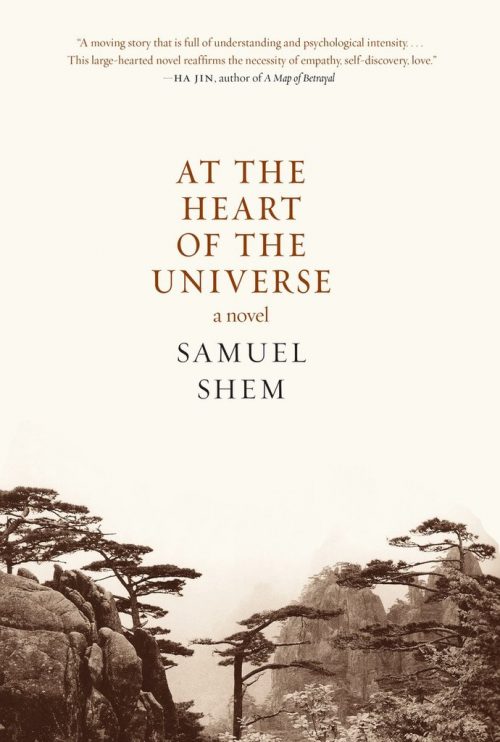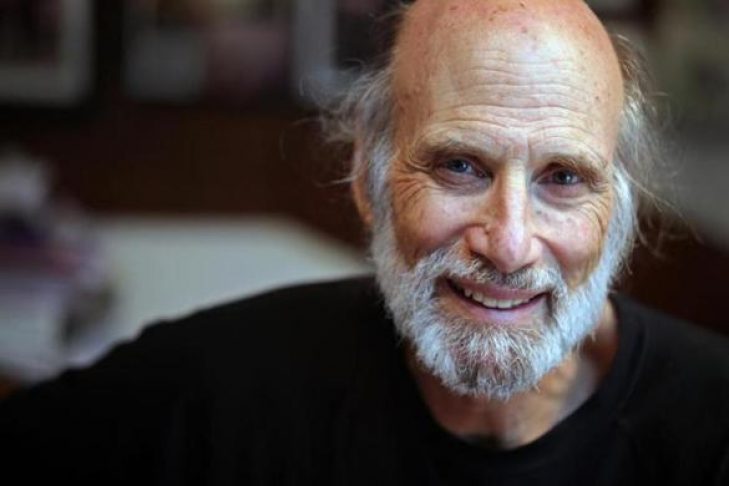Dr. Stephen Bergman—pen name Samuel Shem—made a name for himself more than three decades ago with the medical classic “The House of God,” a satirical look at his training as an intern at Beth Israel Hospital. The Harvard psychiatrist, now on the faculty at New York University, wrote about the brutality and toughness of medical training; he’s still asked to discuss the book today. In his newest novel, Shem sounds a lighter note: “At the Heart of the Universe” is a deeply personal work describing a daughter uniting her adopted mother and father with her birth mother on a mountaintop in rural China. The book is based on Shem’s own experiences adopting a daughter, Katie Chun Surrey-Bergman, from China. Here he talks about the joys of adoption.
Why did you write this novel?
Janet Surrey, my wife and co-author, and I adopted a 4-month-old baby from China in 2001. It was very simple, a common story: We were older and we couldn’t conceive and no reason was found—probably our age. So then we started the process.
We immediately joined a very active community of adoptive families of children from China, and we were among the first ever to adopt from China. We adopted our wonderful daughter, Katie. We went back when she was 10. A remarkable thing happened, which stimulated my novel-writing abilities. What often happened is the children were abandoned someplace they would be found, like a police station. We were looking for any records there, and we happened to see this woman walk across the courtyard. Both Janet and I independently said, “Did you see that woman? She looks just like Katie!” It was so vivid that we asked our guide to see if we could find her. That was how vivid it was. We’d seen thousands of faces, but we recognized hers, though we never did find her.
How did adoption change your family?

It was absolutely amazing. I didn’t realize it at the time, but it was about finding a way to connect and be aware across incredible differences of culture, race, class, gender. From the first time we met her, when we were taking care of her, you know, we’re looking into her eyes intensely. A month, two months. It got to be that when we went out and looked at white babies, looked into their faces, their faces looked different, because our child had Asian eyes.
Then, in fourth grade, Katie had to draw her family. We were at her school, looking at the pictures, and she grabbed our hand. She’d drawn three stick figures and a stick figure of our dog, which was nice. The two stick figures were our faces, and then a very dark face, though she’s light-skinned. It was like, “Oh boy.” We didn’t know. We’re a bi-cultural family, and it opens your heart to diverse families. We need to hold the idea that we’re all in this together and to work across any disconnects.
What advice would you give to families considering adoption?
It ain’t easy. We used to call it the “Adoption Olympics.” And the rewards are wonderful. I don’t want to sound too “woo-woo,” but you get the right baby or child. This is a mission of love. Spiritually, you get the baby meant for you.
How have you ingrained various cultures into your family?
We’re very sensitive to that. We practice Buddhism, and we had a “Buddha-mitzvah” for her, with Chinese musicians, a minister and some Jewish elements. We feel part Chinese. We tried to do a synthetic kind of thing, and it was wonderful. Her classmates all stood up and said something, and it was like the United Nations.
What’s Katie doing now?
Not long ago, Janet, Katie and I read from the book at the Cambridge Public Library. Most of the questions came to Katie. She’d never really talked to us about this, and there she was, 25 years old, answering questions, intelligently and articulately, with an audience of 200, stealing the show. At the end she says to us, “You two did a pretty good job.” Which is the greatest praise possible. She majored in animal behavior, and now she’s in charge of animal adoptions at the Animal Rescue League of Boston.
Any parting thoughts on adoption?
Let me read you the last line of the book [talking about when the novel’s birth and adoptive parents meet]: “And if you could ask each of them what they are feeling at just that moment, each might say in their own way that they are feeling part of something else, part of something at the heart of the universe, a universal law of love.”
This post has been contributed by a third party. The opinions, facts and any media content are presented solely by the author, and JewishBoston assumes no responsibility for them. Want to add your voice to the conversation? Publish your own post here. MORE



